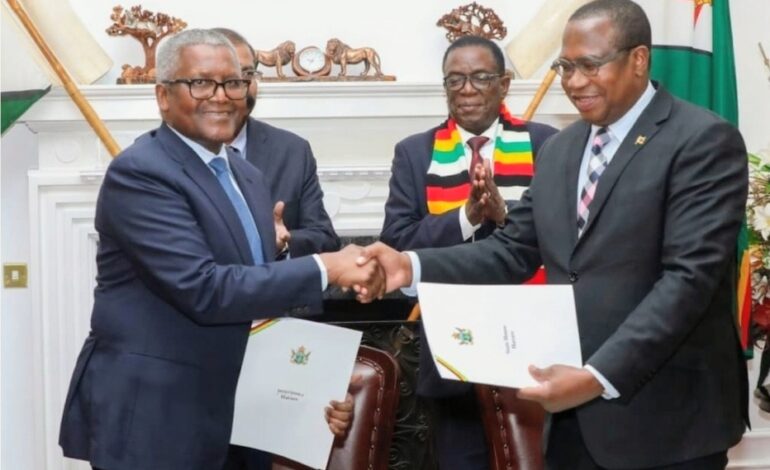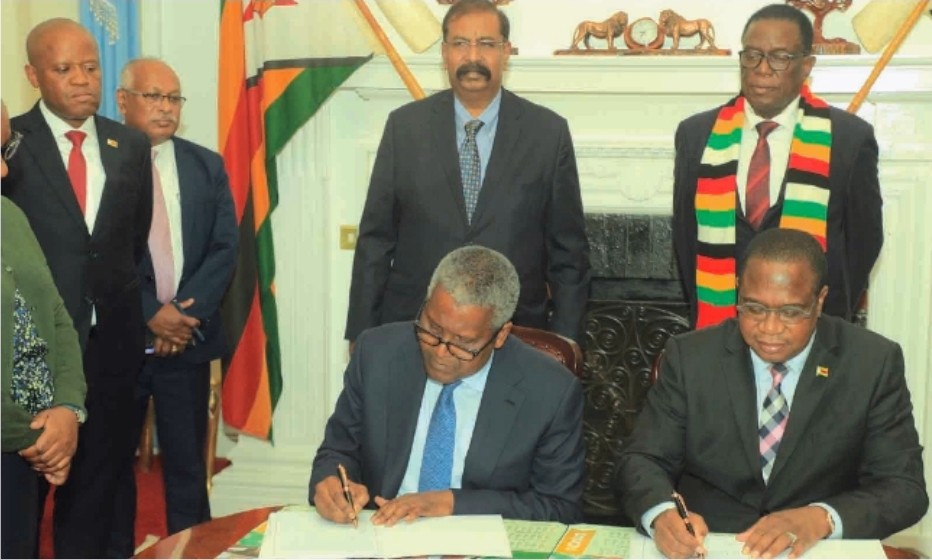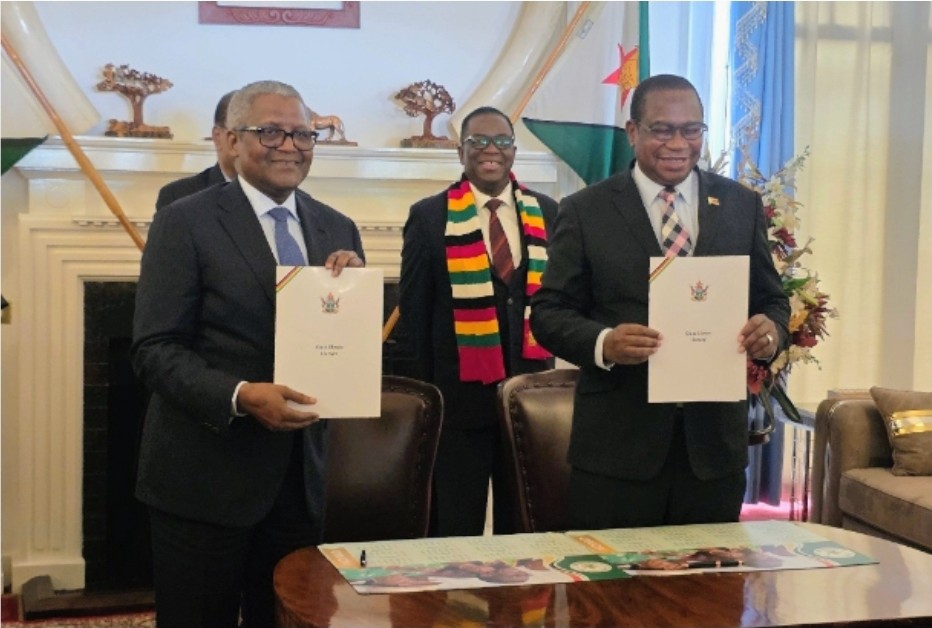
Wayne Lumbasi
Zimbabwe is set to receive one of its largest private sector investments in decades after Nigerian billionaire Aliko Dangote signed a deal worth more than $1 billion with the government. The agreement, formalised in Harare, signals renewed investor confidence in Zimbabwe’s economy and strengthens economic ties between Nigeria and Southern Africa.
Under the deal, the Dangote Group will establish a fully integrated cement manufacturing plant that includes a limestone quarry, clinker production unit and grinding facility. The group will also develop a coal mine and a thermal power station to supply energy for the plant and nearby industrial operations. In addition, a petroleum products pipeline is planned to connect Zimbabwe with neighbouring countries, improving fuel transport and storage infrastructure.
The projects are designed to reduce Zimbabwe’s heavy reliance on imports, particularly in the construction and energy sectors. They are also expected to create thousands of jobs, boost local industries and support the government’s Vision 2030 agenda, which seeks to transform the country into an industrialised and upper middle income economy.

Dangote described the agreement as a long term commitment to Zimbabwe’s growth, highlighting the country’s improved business environment since his earlier visits in 2015 and 2018. “We have witnessed great progress in policy stability and transparency,” he said. “Zimbabwe is rich in natural resources and has a skilled population. We believe this is the right moment to invest and support industrial development.”
Government officials welcomed the deal as a sign of growing confidence in Zimbabwe’s reform efforts. They confirmed that the state will provide the necessary support for land allocation, tax incentives and regulatory facilitation to ensure smooth implementation. Construction of the cement plant is expected to begin first, followed by the energy and petroleum infrastructure phases.

The Dangote investment aligns with ongoing efforts to attract more foreign direct investment into Zimbabwe’s mining and manufacturing sectors. Authorities hope the projects will help reduce the country’s trade deficit, stabilise supply chains and stimulate growth in key industries such as construction, transport and logistics.
Beyond the immediate economic benefits, the venture could also serve as a platform for technology transfer, local training and skills development. Zimbabwe’s Ministry of Industry and Commerce has emphasised that local suppliers and contractors will be prioritised during the construction and operational phases, ensuring the investment has a strong domestic impact.
Dangote’s move further expands his group’s Southern African presence, adding to existing operations in Zambia, Namibia and South Africa. If successfully executed, the projects could turn Zimbabwe into a regional hub for cement and energy production, marking a major milestone in its path toward industrial recovery and sustainable growth.
MORE ON ZIMBABWE
ZIMBABWE’S RULING PARTY TO EXTEND MNANGAGWA’S TERM TO 2030
REVIVING TRADITION: HOW NHANGA IS HELPING ZIMBABWEAN GIRLS FIGHT CHILD MARRIAGE
TRAVEL EXPERTS NAME MOROCCO AND ZIMBABWE AMONG 2025’S TOP DESTINATIONS








